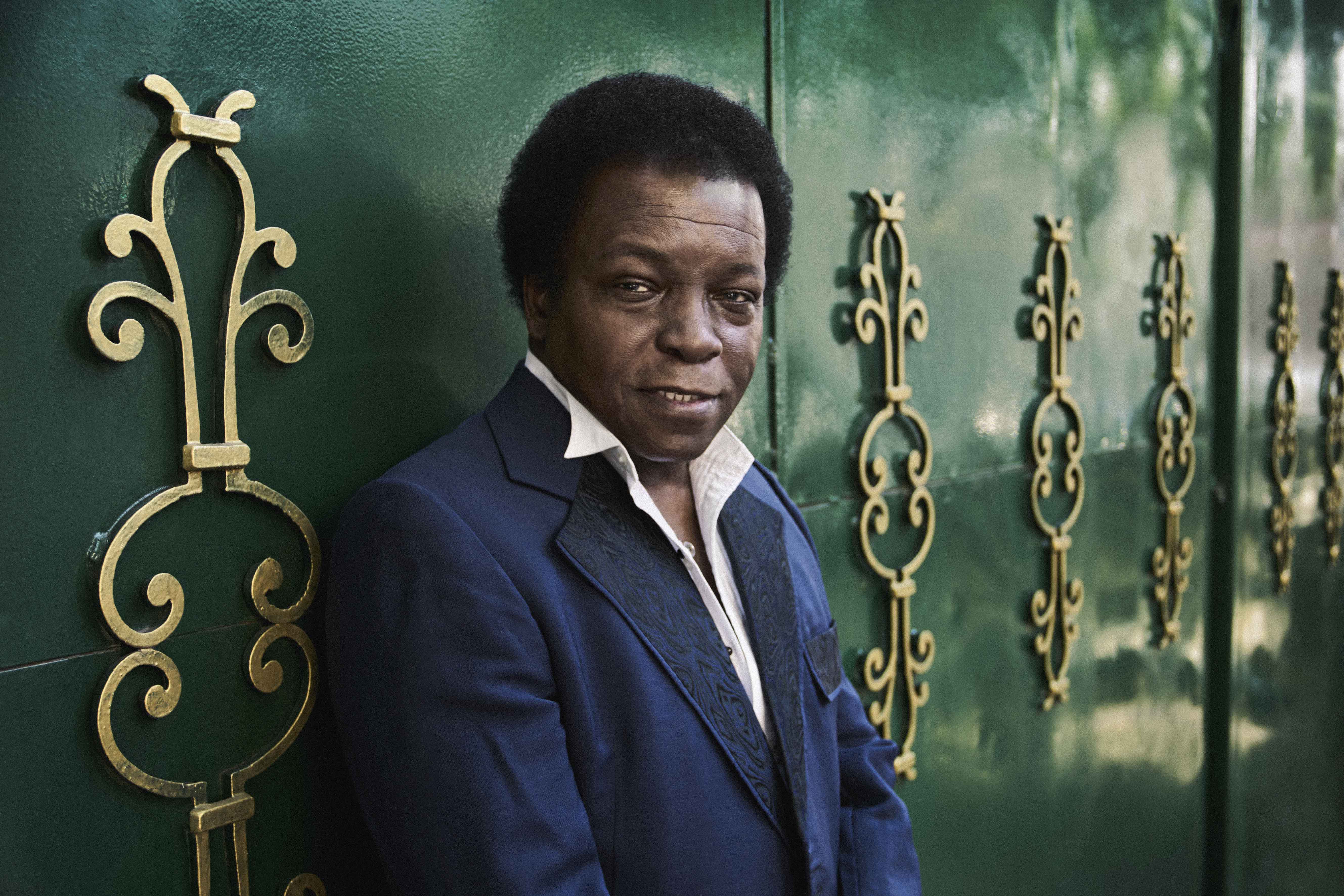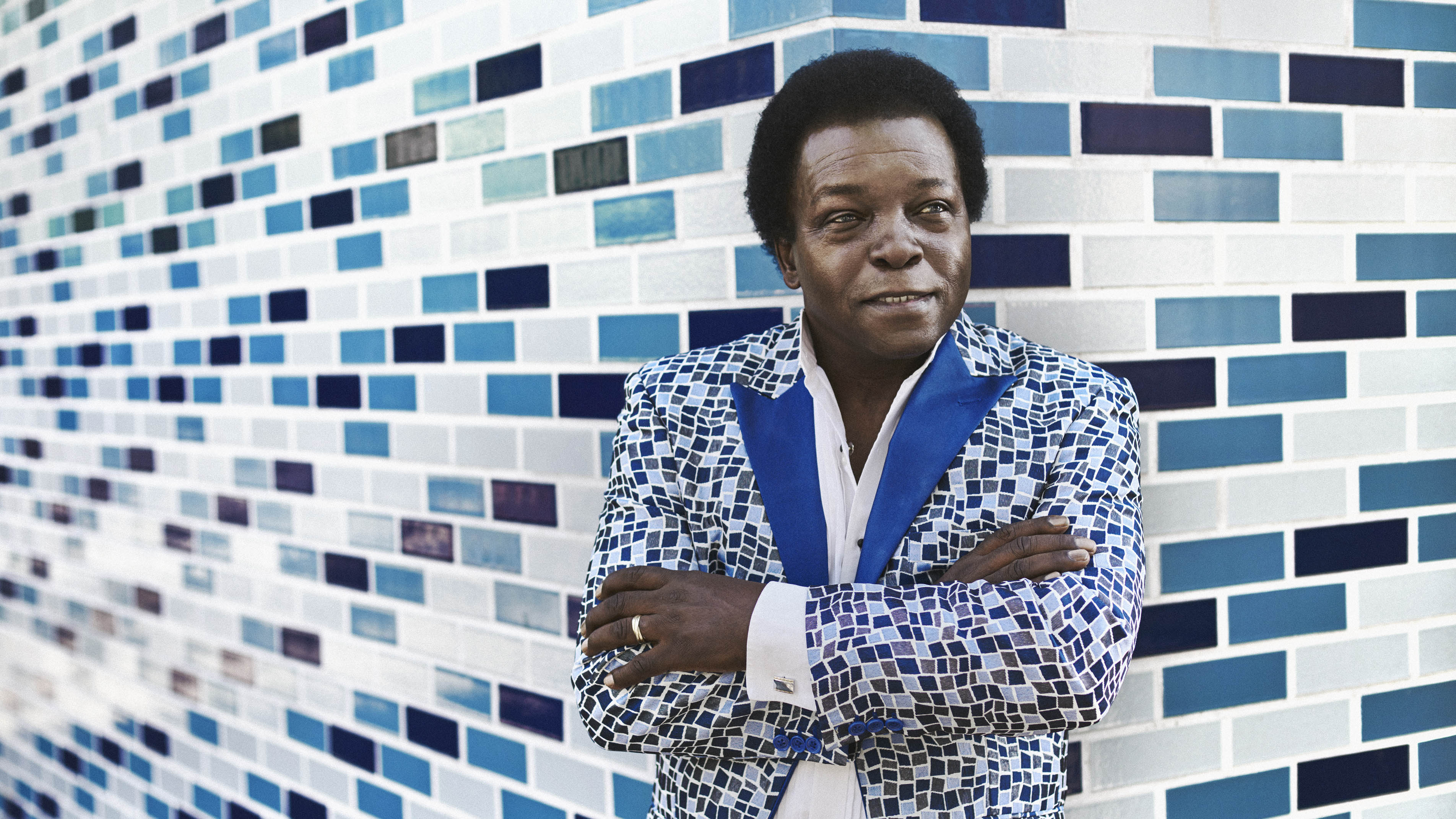“Everybody there had so much love,” says Lee Fields, the sixty-five-year-old soul singer, referring to the intimate, invite-only audience who had crammed into the back room of New York City’s Pianos the night before to witness a blistering set of sexy, funky gems from the North Carolina native.
Fields is on a promotional trip to herald the release of a new album, Special Night, the latest in the long line of recordings that stretches back nearly fifty years, and one that is coinciding with a rise in popularity and success for the singer who has over many decades seen his share of highs and lows.
Love features prominently in the work and attitude of the lifelong musician, who cut his first single in New York in 1969 at the age of eighteen. “Bewildered,” a plaintive ballad, came at a time when American R&B was exploding, James Brown was being heralded as the Godfather of Soul, Stevie Wonder was a few years away from breaking out after opening for The Rolling Stones, there was a void left after the sudden death of Otis Redding in 1967, and America, still reeling from the civil unrest of the late ’60s and the quagmire of the Vietnam War, needed some funky love; Fields was happy to oblige.
The ’70s were good for Fields. The young musician toured constantly and released numerous singles and EPs on an ever-changing array of labels, but by the end of the decade, as disco, punk, and the rise of club culture shifted popular tastes away from big band productions, Fields saw his career go into decline. He spent the subsequent decade searching for a path, but by the early ’90s he was back; he hasn’t stopped moving since.
In more recent years, Fields has recorded and toured with a much younger backing band, The Expressions. They are, according to the man himself, the band he had been waiting for: a classic soul lineup composed of top-notch players. They stunned the small crowd at the NYC club, and next year they’ll have much bigger stages to fill. They’re a tight combo—punchy when they need to be and smooth as whipped butter when their commander shifts into a croon. Versatility, and the willingness to change based on needs, are after all another kind of love.
With Fields’s US tour just about to begin, we called up the sexagenarian bandleader at his New Jersey home to chat about love, life, and, above all, soul.
 How does it feel to be having this moment of success compared to how it has been in the past—the ’70s for instance?
How does it feel to be having this moment of success compared to how it has been in the past—the ’70s for instance?
Regardless what the time is, whether you go back thirty or forty years ago, it was “right now” then, you know what I mean? Right now always feels like right now for the time that it is. I try to live in the moment.
What were you up to in the time between the ’80s and your resurgence?
The ’90s were about my wife. I was going to open up an eatery—a fish takeout, where you come in for fried fish. My wife says, “What do you know about fish?” and I was like, “Well, it tastes good.” [Laughs.] She advised me to stick with what I know. I said that music is not happening for what I do, and she said, “You got to believe in yourself.” So I bought a lot of equipment and I cut a track called “Meet Me Tonight,” and ever since ’92 I haven’t stopped. I’m thankful that I took that time in the ’80s to sit down and gather myself, because I was falling apart, man. I was just like an old raggedy car with the wheels falling off.
How does the songwriting go? Do you have a particular writing partner?
Oh yeah, all The Expressions, we come up with a groove or they come up with a lick, and it takes a while because I try to be very thoughtful with what I’m saying. I try to choose words that are appropriate, and it saddens me when I hear the total disregard of the choice of words [by other contemporary musicians]. I think the same statement could be made in a less vulgar manner, [but it] seems like the public has a love for vulgarity.
https://www.youtube.com/watch?v=Cbyydag6CQ8
So if you were a teenager in the ’60s you must have listened to a lot of Dylan, The Stones, Otis?
The Beatles, James Brown, The Rolling Stones, Otis Redding, a lot of Top 40, Lesley Gore, Sinatra, Porter Wagoner, Dolly Parton. See, in North Carolina, radio stations didn’t play soul music till Saturdays, so I got the chance to be introduced to a lot of country and western and a lot of other things. On my next album, I want to do a country and western song.
How did you feel about the election?
Every time I think about this election it depresses me, because it didn’t have to get this low. That’s the reason I’m so devoted to having my albums give people a cool breeze of hope—something they can listen to and feel good about—and I’m so proud that we picked some songs that can uplift people. I call it human to human. “Work to Do” for instance, is about an individual who has substance abuse problems, and they realize that they’re hurting the people around them and they decide to do something about it. I try and express themes in this album that are very important and relevant to the state we’re in today.
I just figured out that that’s what the name The Expressions is about—expressing oneself.
We decided to name ourselves for that very purpose. It’s very democratic. FL







